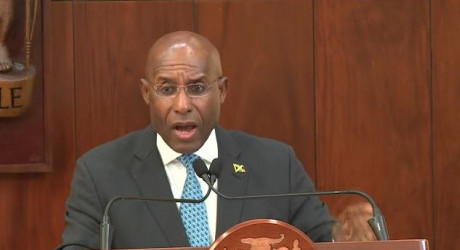.png)
00:00
00:00
00:00
Dr. Lucien Jones, Vice Chairman of the National Road Safety Council
The National Road Safety Council (NRSC), through the National Helmet Wearing Coalition Project, is advocating for the establishment of helmet testing sites across the island.
The move is aimed at minimising the risk of imported helmets of inferior quality being sold to unsuspecting motorcyclists.
NRSC Vice Chairman Dr. Lucien Jones says the initiative will be developed as a regional effort.
"We have a think tank coming up, look at things from a regional perspective. One of the things which has been advocated worldwide is that you have to set up testing facilities. You can't depend on what the importers are telling you that this is okay, when it's not, because if when you fall and hit, the helmet can't withstand the pressures or the strap that is supposed to hold the helmet in place flies off, then there's a problem. So that's the reason why the coalition is very vociferous, very serious about getting testing done. We mentioned to the Prime Minister at a meeting with him recently, and he agreed, but he said it has to be a regional effort," Dr. Jones revealed while speaking Tuesday on TVJ's Smile Jamaica.
To date, there have been 151 road fatalities, 42 of which were motorcyclists. A further breakdown of the data shows that seven of the victims are a pillion passengers.
Dr. Jones said this is the first time in five years that motorcycle deaths have been under 50 for the period in question. He is hoping that the work of the National Helmet Wearing Coalition, which has been operational for a year, has been making an impact.
Meanwhile, the National Road Safety Council will be taking its advocacy to the private sector for better reach of that cohort of motorists, particularly motorcyclists.
Dr. Jones said this is one of the recommendations coming from the World Health Organization to tackle road traffic crashes. He shared the concern that motorcyclists employed in the private sector can be observed almost daily acting contrary to the road traffic regulations.
"So formally, we focused mostly on governments and civil society. But what they are saying is because of the huge number of persons who are using our roads, who are employed, we are now to move our advocacy into the realm of the private sector, who are employing these people. Of the 1.2 million people who died last year, 400,000 were people who were employed by somebody. So that's a focus now. We need to get into the companies. We need to get NGOs organised. So bring them on board so we can all work together to tackle this serious problem. It's a huge problem. It's a cultural problem," he lamented.


.jpg)



.jpg)



 All feeds
All feeds







